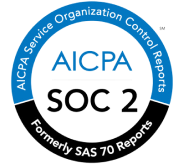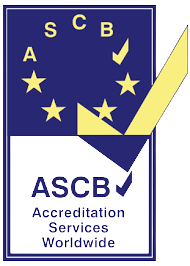Recently, team uKnowva in collaboration with SkillsConnect, once again hosted a webinar on “Skills Freshers Need for Year 2030” on 29th October 2022. The panel was honoured with the presence of the Chief Guest Speakers like Shikha Bakshi (Director TA at Tiger Analytics), Pauline Coutinho (VP & Head HR at Interactive Avenues), and Biren Anshu (CHRO at Hi-Tech Robotics Systemz Ltd) where Sunil Kabra (Director at Ace Human Capital), Vicky Jain (Founder and CEO of uKnowva), and Ranu Parwal (Founder of Acura Solutions & SkillConnect.in) joined the discussion to make it more interactive and insightful.
Bistriti Poddar, uKnowva’s Chief Communication Officer, beautifully and flawlessly hosted and anchored the webinar. The panel discussion covered the industry-led opinions on the skills freshers need for 2030 to get ahead of the curve smartly.

Our Key Webinar Takeaways:
Pauline Coutinho (VP & Head HR at Interactive Avenues) commented that the world of work is constantly in a state of flux when we talk about deciphering or noting down the skills that would be the most demanding by 2030. She pointed out how, from being fluent in English, laptops, and secretarial jobs, we are now rounding about the Social Quotient and Digital fluency aspects of hiring executives. She said, “Skills that we required yesterday were different from today, and what we need tomorrow will not be the same today. Yet, I would bucket the future skills into two broad categories. One would be hard and functional skills and the other would be soft skills.”
“Adapting to change is the key to going all the way along.”
– Pauline Coutinho
Wherein Biren Anshu (CHRO at Hi-Tech Robotics Systemz Ltd) added his perspective to the discussion. According to him, there is no prescription for the function and choice of skills a person would want to take to be indispensable by 2030. However, the skills will be more tech-to-functional in the later years of this decade. “Understanding the relevance of technology across functions and its deployment across industries would help the candidate or fresher perform the job better,” added Biren.
“The way to learn is from the young graduates who are coming to get employed.”
– Biren Anshu
Biren further commented, “When you have a good way of making sense, addressing the problem in the domain that you’re working, you learn on the job and upskill thereon.”
Shikha Bakshi (Director TA at Tiger Analytics) took the panel discussion further on skills of the future for freshers by 2030. According to her, not everyone is there to become a data scientist, and not everyone might be adept at technological upskilling. It’s important to understand the evolving nature of data and technology. Her perspective highlighted the importance of first identifying one’s key strengths and core capabilities for leveraging the available data and drawing better business outcomes.
“You must find what you’re best at and learn how to mingle it with other skills to be the best.”
– Shikha Bakshi
She commented further that data and technology literacy is essential and is the meta-cognitive skills evolution. With her 16 years of experience in the industry, she has seen how the fresher struggle to be adaptive and resilient. “Humble, hungry, and smart are three core traits that make the fresher stand out in the technologically-backed industry today and might as well continue for the years ahead,” she added.
Further, Shikha Bakshi pointed out that freshers should not fear losing jobs. Instead, it’s the peak period when more creative jobs will be up for grabs. These will be more human-centric jobs. So, again, cognitive skills have higher chances of being primary skills by 2030 to own and be prowess at.
Pauline Coutinho further analysed how computers, laptops, robotics, and automation have changed the nature of job roles in the last few decades. “Automation and Artificial Intelligence is the new revolution,” she added. She said that automation and AI are transforming almost every other industry.
Vicky Jain, uKnowva’s CEO, agrees with the same analysis and believes people shouldn’t fear the automation revolution in the industry. While iterating the real-life example of an engineer drop-out, he confirms that owning one’s strengths and skills should be the primary motivational factor to go ahead.
Biren Anshu believes that menial, dull, repetitive jobs will most likely become obsolete. Another factor that influences the emergence of automation is the status of the economy. The economies are still evolving, and automation at a large scale there could still be a challenge. Such economies are unable to put the cost of automation in front of the cost of labour to draw in favourable outcomes by and large. However, India is finding the right shift in the economy, which aligns with the upward growth of digital transformation. There’s already a 9x increase in the ratio of employees taking digital courses since the pandemic, and he realises that every employee has to upskill themselves, including himself, to ensure job security to oneself. This practice makes the top talent more indispensable and valuable to the firm in the long run.
Ranu Parwal, founder of Acura Solutions & SkillConnect.in, shared his two cents on how repetitive jobs are becoming more obsolete and going to be overtaken by workflow automation over a period of time altogether. He gave examples of drones for delivery services, driverless cars with complete automation, and more to prove how technology is here to stay and take over. The work culture of tomorrow will be aligned with the new talent that’s coming up. There’s no doubt, especially in the robotics and analytics space.
Vicky Jain added that skills are preferably more in command demand over educational background once one is employed and continues to upskill and relearn. That’s how one build’s their calibre and core competencies in the industry.
Sunil Kabra, Director at Ace Human Capital, added that putting good energy into your work and reskilling is primarily important. He gave the example of real-life drop-outs, like Bill Gates, who is winning their industry standards with the zeal to break benchmarks and continue to upskill. Building, evaluating, and practically implementing concepts in the new-age economy is another driving force for the new-gen to remain employed with an entrepreneurial mindset today.
Conclusion:
Today’s generation, especially Gen Z, is highly adaptive to social media and consuming content. But they have been trained less to handle stress and anxiety. However, Gen Z and other generations of the future will have to become proficient in self-analysing their strengths and weaknesses and develop a professional mindset of learning on the go (or on the job). Because as we conclude the panel discussion, it looks like the learning will never stop. The need of the hour to upskill and relearn will continue to grow. Hence, it’s high time for freshers to continue this momentum to stand out and be ready for the future, which is already here.
Missed this webinar?
Don't worry. You can easily watch it on YouTube from the link given below.
YouTube Link:












